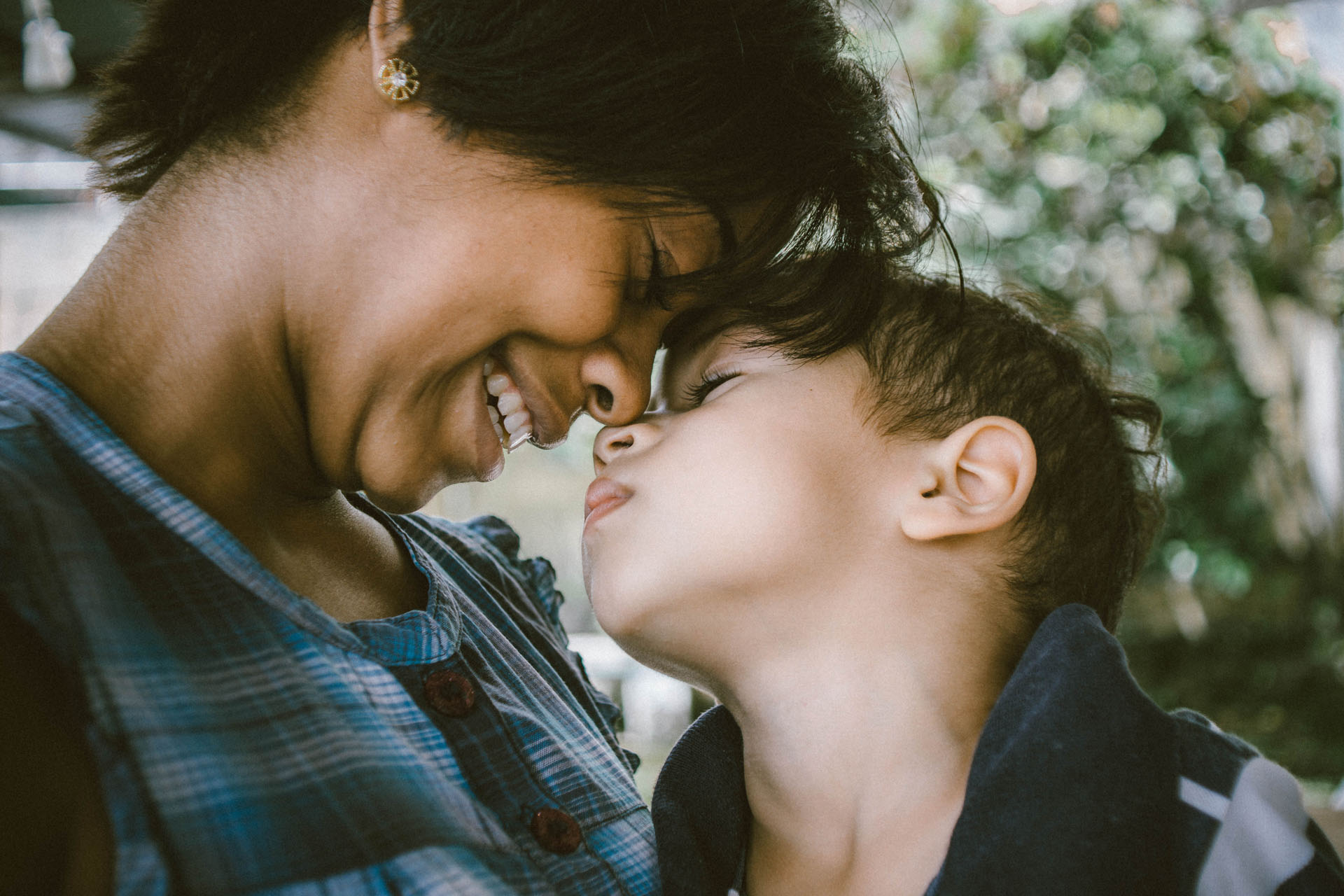School
5 min Read
4 ways to teach kids empathy

May 28, 2021
School
5 min Read

May 28, 2021

Regardless of the circumstances, when kids are unkind—whether to a sibling, friend or stranger—we need to remember that they’re not intentionally trying to be hurtful. They simply lack the intuitive feelings of empathy and compassion we parents mistakenly assume they possess. “Unlike good table manners, which can be learned over time, these are traits that are caught rather than taught, says Mary Gordon, Toronto-based founder and president of Roots of Empathy. “Children repeat the behaviour they’ve witnessed. If they haven’t seen and experienced compassion in their lives, they can’t exemplify it.”
So how can you best model empathetic behaviour? Start when kids are young and be consistent with your approach, says Colleen Stratton, psychologist at ABC Psychological Services in Edmonton. “Kindness and compassion are virtues easily developed within children, but whether or not they see these traits valued in their upbringing is what determines whether they stick,” she says. Ultimately, children are open to learning and will imitate what they see—whether it’s respect, tolerance, kindness and empathy, or cruelty, bullying and violence. This makes the encouragement and display of positive behaviours a huge priority.
If you want to encourage your child to be empathetic, start by setting an example. Here’s how:
Little eyes constantly look to you for an example—and approval—so let them know how much you value thoughtful gestures. According to Martha Scully, founder and president of CanadianNanny.ca, rewarding a child’s empathetic moments is one of the best things you can do to encourage repeat performances. “Praising a child when you’ve seen them be kind is important because they not only understand that doing something compassionate generates praise, but it’s also a great way to show them how important those virtues are to you.”
On the flip side, be just as direct about your thoughts on unkind behaviour. Just because you understand why your daughter snatched her favourite toy from her sleepover buddy’s hand doesn’t mean you should stand idly by and let it happen.
Spell out your expectations on how others should be treated early on. This sets the tone for your child’s conduct, letting her know what is and isn’t okay. When situations arise that can be used as opportunities to teach kindness, use them. Saying something like, “I know you really like playing with that horse, but grabbing it out of Hailey’s hand wasn’t very nice,” reminds them that kindness is important, while also keeping the negative attention on the act and not the child.
Lastly, discuss what it means to be kind. Being empathetic can mean different things to different people, so spell out what it means to you by saying something like, “We’re being kind when we think about other people’s feelings and not just our own. We’re being kind when we share, when we help someone who can’t do certain things on their own, or when we do something to let someone know they’re important to us. Kindness makes people happy, and it’s important to me that you always try your best to be a kind person.”
If humility is a virtue, consider shelving it when you’re trying to encourage kindness in a child, says Mary. “Parents tend to perform empathetic acts so naturally that they often go unnoticed. When trying to exemplify compassion and have your child adopt that behaviour, make a point of dialing all your good deeds up a few notches,” she says. That could mean bringing flowers to an elderly neighbour, asking a cashier at the grocery store how her day’s going, opening the door for someone, picking up a piece of litter on your way in or out of a store—all while your child’s along for the ride. Be sure to highlight what you’re doing, explain why you’re doing it, and how good you feel when it’s done.
It’s one thing to say you value kindness; it’s another to behave as though you do. “If you want your child to be nice to others, but you yourself are always fighting with your partner, the message gets missed,” says Martha. Make it a priority to consistently be caring and compassionate to others (pets included), to make your child feel safe, loved and secure. Studies say that when a child feels safe and secure, they’re more likely to pay attention to others without feeling they’ve taken something away from themselves—and remember that your wee ones pay more attention to actions than words.
Let your kids see you feeling sad or upset, so they have the opportunity to experience feelings of compassion and comfort. “Explain how the actions of others impact you. This teaches them early on that being thoughtful, compassionate and kind can have a beneficial impact on the way someone feels,” says Colleen.
Make helping others a family affair. Enlist your child’s help in whipping up a cake for a new neighbour, arranging flowers in a bouquet for a sick friend or helping with the clean up after a community event. Have them fill and donate a box of their outgrown clothes to a local shelter or bake and drop off a batch of their grandpa’s favourite cookies. By including them in your good deeds—however small—they’ll find out firsthand how important it is to brighten someone’s day, and how amazing it feels when you do.
Originally published in ParentsCanada, April 2012.